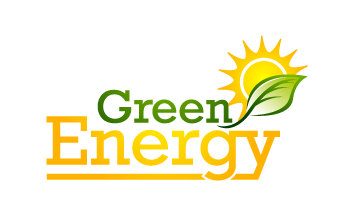Australian households installed more residential rooftop solar power systems last year than any other nation.
Approximately 392,500 new home solar systems were activated in 2011 according to data from the Clean Energy Regulator and the International Energy Agency.
A fact sheet released by REC Agents Association (RAA) based on data from the Clean Energy Regulator states Australians had installed nearly 1.5 million solar hot water and solar panel systems to the end of June.
As at 30 June, 2012, renewable energy certificates had been created for 753,844 solar panel systems; representing 1,671,489 kW capacity. A further 743,842 solar heat pump and solar hot water systems had been installed.
Close to 18% of all Australian families now has one or the other or both installed - 9% of households have solar electricity generation systems.
"Recognition must go to the Howard Government for having the vision to establish a world leading Renewable Energy Target, to the Rudd Government for increasing that target four-fold and to the Gillard Government for delivering on the promise of the Renewable Energy Target," says Ric Brazzale, President of RAA.
"Whilst four million Australians now have solar on their roofs, many more Australians are keen to get on board. The Renewable Energy Target must be maintained, expanded and extended over time to help deliver solar to all Australians."
Some corners of industry have called for the scrapping of the Renewable Energy Target due to the introduction of a carbon price. However, last month, Australia's Minister for Climate Change and Energy Efficiency Greg Combet stated this would "fail to deliver the transformation needed in our energy sector and only increase the cost of that transformation in later years."
REC Agents Association represents businesses creating and trading in Renewable Energy Certificates (RECs); the mechanism behind Australia's Renewable Energy Target and the basis of the Solar Credits Scheme. Often referred to as a solar rebate, Solar Credits is an initiative that subsidises solar panel systems.
Story supplied by Energy Matters
Green Energy WA Solar Energy News
We welcome you to our blog and hope you enjoy your visit!
Tuesday 21 August 2012
Monday 13 August 2012
PM Gillard on surging power prices
As Prime Minister Julia Gillard addressed the Energy Policy Institute of Australia (EPIA, she likened the surging costs of household power bills to petrol prices..
Ms Gillard accepted that prices of energy had increased at unprecedented levels, and acknowledged that the runaway power bills often seemed ‘beyond our control.’
But Ms Gillard assured her audience that the Government was in a better place to counter growing energy costs as it prepares for the release of its new Energy White Paper, as well as introducing price determinations next year.
Ms Gillard also outlined planned COAG reform that would see action before the end of the year.
The Prime Minister failed to resist taking a swipe at the NSW and Queensland Governments, who’s publically owned utility companies are continuing to reap growing profits.
“Meanwhile, some states, like New South Wales and Queensland, are doing very well out of this financially and their revenue from some electricity assets is growing much faster than in the private sector,” Ms Gillard said.
“So it is also very clear that the States can, and should, do more to cut future price rises.”
Ms Gillard also acknowledged that reforming the sector would take a herculean effort, and that the mixed public/private nature of the sector would make reform complex and diffuclt to deliver.
"And of course, there’s the pragmatic, patchwork design of National Electricity Market itself – a complex mix of co-ordination and competition, public and private ownership, national and state regulation,” Ms Gillard said.
“But, recognising that complexity, appreciating the conflicting objectives and incentives, and taking into account the long-term factors at play, I want to say very clearly: the last four years’ price rises cannot continue.”
The Clean Energy Council (CEC) has called for extensive reform to the country’s consumer energy market in the wake of the Prime Minister speech on energy reform.
Clean Energy Council Chief Executive David Green said consumers currently had very little control over their energy bills, and that needed to change.
“Electricity prices are a difficult issue which require governments to put aside politics and act in the public interest. The Prime Minister’s speech today has helped to move the discussion in the right direction, calling for urgent action by state governments to enact reforms to stop the run of power price rises,” Mr Green said.
“Electricity prices are a difficult issue which require governments to put aside politics and act in the public interest. The Prime Minister’s speech today has helped to move the discussion in the right direction, calling for urgent action by state governments to enact reforms to stop the run of power price rises,” Mr Green said.
Subscribe to:
Posts (Atom)
